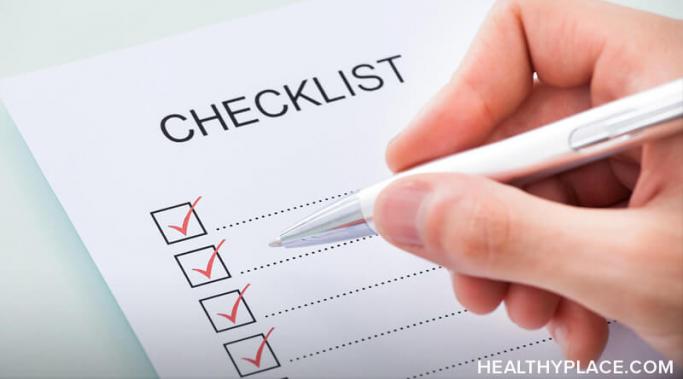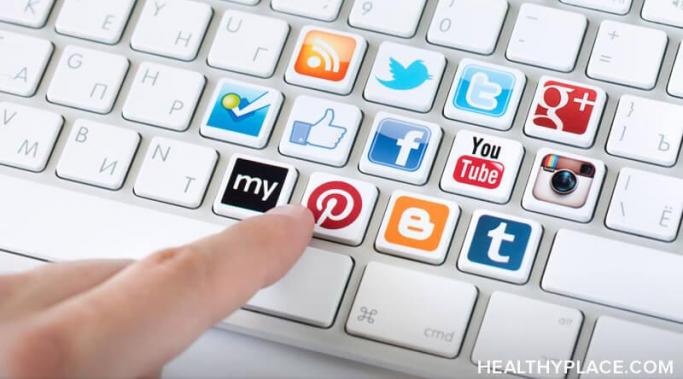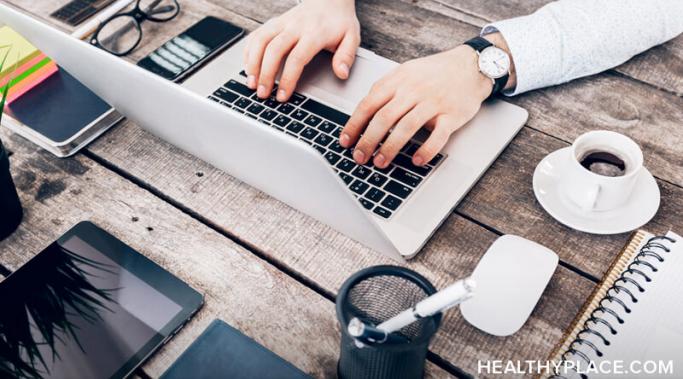You probably want to control anxiety attacks and panic attacks because they are frightening experiences that make anyone who has them feel out of control. Of course people feel out of control with anxiety attacks. They are all-consuming. It’s as if the world shrinks around us like cling wrap -- squeezing, crushing, and suffocating us. And at the very same time, panic attacks make the world feel like it’s growing bigger and bigger so that there’s nothing to ground us, leaving us to spiral dizzyingly out of control. Is it even possible to control this terrible aspect of anxiety? Happily, there is. This checklist can be your guide to control anxiety attacks or panic attacks.
Anxiety Management – Anxiety Schmanxiety
Wouldn't you love an anxiety-free day? Is that even possible? While living fully free from anxiety isn’t humanly possible (or even desirable, as anxiety can be a positive force), we all do have the power to make our days less about anxiety and more about mental health and wellbeing. To borrow from solution-focused therapy, what would your day be like if anxiety weren’t a problem? What would you put in its place? How would you live and thrive today without anxiety in the way? Thinking about those answers, let's create your anxiety-free day.
Does social media cause anxiety or not? Though social media is often seen as something that provokes anxiety, I find that social media platforms can be useful in alleviating my anxiety symptoms. I am anxious when I see disturbing news or opposing political views on my social media. But having an online support group for my anxiety disorders and my life, post-divorce, has been invaluable to me. For this and many other reasons, I find my social media to be a bit of a double-edged sword regarding anxiety management and knowing whether social media is causing anxiety.
How often do you feel anxiety over time? Do you feel pressured and rushed, anxious because there’s never enough time or because time seems to be flying by too quickly? Time and anxiety are cruel partners, getting in your head and causing worry, even panic. William Penn said it well: “Time is what we want most, but what we use worst.” We want extra time, and when we feel it slipping, we become anxious. The notion that we’re not spending our time well can haunt us, plague us with guilt and cause more anxiety. Even if you’re strapped for time, read on for helpful information.
You can use words as a tool to conquer anxiety by changing the anxiety words in your vocabulary. The saying is true: "The pen is mightier than the sword.” Fighting anxiety, struggling, and thrashing against it keeps your energy and focus on anxiety. But how can you replace fighting -- with your words. Specifically, change the anxiety words in your vocabulary. Changing how you think will change how you act, how you are, and how you live.
Obsessive-compulsive disorder (OCD) doubt and uncertainty is something I've struggled with since I was a young child. Obsessive-compulsive disorder is often dubbed “the doubting disease” because it makes you second-guess yourself. And uncertainty about life can make my anxiety skyrocket. Obsessive-compulsive disorder doubt and uncertainty about life can be debilitating, but I am finding small ways to cope.
It's important to reduce work anxiety because it is interfering with the job success and satisfaction of over half of all working Americans.1 Numbers are likely as high in many other countries, too. Performance anxiety, a sense of perfectionism, generalized anxiety, and social anxiety can all hinder our ability to do well at work. Problems at work because of anxiety lead to more anxiety. As anxiety grows bigger, its sheer size blocks us from moving forward and creating a positive work experience for ourselves. It seems like a never-ending cycle, and when work-related anxiety blocks our way forward, it can feel like we’re doomed to be stuck. Fortunately, this isn’t the case at all. You can reduce work anxiety when it gets in your way.
Anxiety in romantic relationships, for better or worse, complicates love. I’ve had a variety of significant others. Some partners were supportive of my mental conditions, while others were not sympathetic to any significant degree. I’ve had to deal with many problems, such as rejection and anxiety about the state of my relationships. Though anxiety complicates my romantic relationships, it doesn’t make romance impossible for me.
Anxious negative thoughts play a huge role in the worries, fears, and what-ifs of all types of anxiety. In turn, the worries, fears, and what-ifs fuel anxious negative thoughts. The relationship between our thoughts and our anxiety is complex, enmeshed, and downright unhealthy for us. That said, you are neither a victim nor a prisoner of your anxious negative thoughts. Despite how it might seem, you can change how you think and reduce anxiety in the process by making one shift.
Hobbies can calm anxiety, and I use them as self-help in my daily mental health struggles. A friend recently asked me what alleviates my anxiety. I quickly quipped that I’m always anxious, and then I realized that isn’t exactly true. My passions—music, reading, and writing—may never make me rich. But these hobbies allow me to calm my anxiety and are valuable mental health self-help tools.









